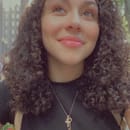As a Latina woman who is fair-skinned, discussing privilege is a strange topic. Finding where you belong and what privileges you have is a hard thing to understand but it is essential for activism and fighting against oppression. When you understand what privileges you have, you can be able to recognize your position in certain situations and how you should behave in those situations.
When I was younger, I attended a charter school that was majority Black and Hispanic students. My high school was the same. The only white people I had ever encountered were my teachers. I had never really experienced white peers until I got to Geneseo.
In high school, I started my activism. I organized workshops, rallies and attended protests. I thought I was doing great. By jumping into activism and running these big movements at my school, I truly thought that I knew everything there was to know about being an activist and an ally. As you can see where this is leading to, I clearly did not know everything. Instead, it was on the surface activism, working for outside causes without working on myself and keeping myself educated.
Then I got to college and realized I had a lot of work to do. Geneseo is a predominately white institution and there is a disgustingly low percentage of POC on campus. With that being said, I started to notice differences in how I was being treated and how my peers who are also students of color were being treated. When I was with Black peers, white students and faculty would approach me differently than they would approach them. It was as if I was the only one who was capable of responding to them. I also noticed how I would get treated when I was alone and the looks I would get from white peers on campus when I looked “extra Puerto Rican,” wearing my headwrap or hoops. Both of these reactions made me sit and think about what my place is on this campus as a light-skinned Latina.
I realized that the chances of white peers and faculty members listening to what I had to say were higher than my Black peers but lower than white peers. Regardless, I had to use what I had in order to elevate the voices of the minorities on campus. This did not mean taking charge or overstepping the work of BIPOC student activists on campus; it meant learning what they were doing, why they were doing it and providing support in any way that I could. It also meant taking a step back and listening, then spreading the word and working alongside them, not working in front of them.
Another part of recognizing my privilege was understanding that because I have the resources to be educated on certain issues, I should absolutely use them. Education is incredibly powerful and having it is a huge privilege that we often take for granted. Instead, we should all be absorbing as much knowledge as we can in order to be our best selves and be able to support our communities.
At the end of the day, I understand that there is so much more I need to learn when it comes to activism and that good activists always make an effort to continue educating themselves. It took a lot of trial and error to get to where I have gotten to, and a big part of activism is making mistakes and doing better the next time. I hope by reading this you get some clarity on your journey and understand that while it is okay to make mistakes and grow, you always have to hold yourself accountable and recognize your position.


